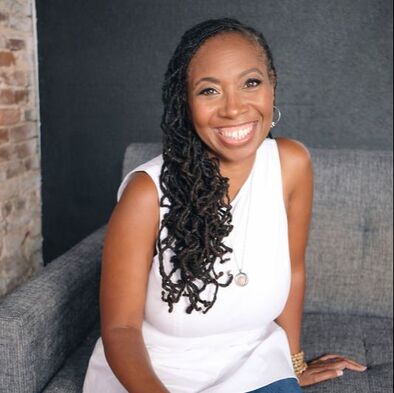|
While reading an email from one of my favorite YouTube bloggers, I was struck by the question he had been reflecting on to determine whether he would continue with the successful online business he'd created or call it quits.
It made me pause to think about what my own answer would be. As a physician who is now thriving in a second career, it seemed like a relevant question for all physicians to ask themselves, no matter what stage of career they're in. When it comes to your career and the work you are currently doing, "are you doing it because you want to or because you feel like you have to?" The road to becoming a physician is long and arduous and most don't enter the profession on a whim. There is a huge up front investment of time, money, and energy (physical, emotional and mental) not to mention the often negative impact on relationships with family and friends. We often have an idea, well, really a dream, of what life will be like once we reach the light at the end of the tunnel. We believe with all our heart that the sacrifices will have been worth it. Unfortunately, expectations don't match reality. With that said, the majority of physicians I've talked to say that they would do it all over again. I am also in that camp. I have no regrets about the career choice that I made. I feel honored to have had the privilege to serve so many families; to advocate and care for numerous children and young adults: to encourage, teach and mentor generations of future doctors; and to support and advise more residents, fellows and colleagues than I can count. In reflecting more on the question, I think one belief we have that doesn't serve us is that after we complete our training, we must find a job, "the right job", and stay there until retirement. Many physicians are young adults when they embark upon their career journey. Life brings many changes from the point of entry into medicine until the time of retirement. Priorities, responsibilities, health and other circumstances morph throughout the various stages of life. Why then do we believe that the work that we do would not change as well? For physicians, clinical practice continues to be the traditional path that the majority of physicians choose. However, there are multiple ways to serve and contribute to the health and well-being of the community. There are numerous opportunities to find career fulfillment in clinical and non-clinical positions. And don't forget that the two are not mutually exclusive. Prior to my retirement from clinical practice, I created a career that included non-clinical work that allowed me to speak, teach and coach. The skills I learned from the non-clinical work also helped me to improve upon my clinical work. So if you're looking for ways to boost your sense of career fulfillment, consider the following suggestions:
As you think about your current position, as yourself the question. If your answer is you're doing it because you feel you have to, explore some of the suggestions above. So, how would you answer the question? Let me know in the comments below. And if you want to brainstorm additional ideas and strategies, reach out to me via email, [email protected]. Image credit: Depositphotos
0 Comments
"I'm so sorry to bother you...I know how busy you are."
If you're like most physicians and busy professionals, you may be hearing this phrase preface the request or invitation that is about to follow. It's become common to wear busyness as a badge of honor. Taking on new responsibilities and tasks without letting go of current ones is not a sustainable practice, especially when you find yourself struggling to get in basic self care like eating nourishing meals, exercising consistently and getting enough sleep (quality and quantity). The constant deluge of email, voicemail, professional and personal tasks quickly add up and become a recipe for busyness. It’s inevitable…at some point in the pursuit of your passions, goals and dreams, you’re going to get tired, frustrated and completely overwhelmed. And in some cases, you'll want to just throw your hands in the air (or curl up under the covers) and raise the white flag of surrender. So what do you do when you find yourself in the land of overwhelm? If you find yourself there, know that you are not alone. We all end up there from time to time. The key is recognizing when you’re there so you can take action to get out sooner rather than later. Here are 3 simple strategies to help you regain your footing and see your way out. 1. Gain Clarity
2. Examine your expectations
3. Practice making front-end decisions
Everyone faces frustration, overwhelm and exhaustion. How you handle yours determines the way you feel as you do your work in the world, and ultimately how you live your life. What helps you to get out of overwhelm? 7/11/2021 0 Comments The Power of CommunityMy family and I have been overwhelmed by the generous outpouring of support received in response to the passing of my brother.
This reminded me of the power of community in helping us navigate major life challenges and changes, both personally and professionally. These communities can be in-person or virtual and may last for a season or over a longer period of time. In thinking about the communities I've had the opportunity to facilitate - past and present - the most successful ones have several elements in common. Safety Creating safe space where people can feel free to be themselves is extremely important in community. At times where we are most vulnerable, this level of safety can allow you to explore thoughts, feelings and actions that lead to valuable insights and clarity. Trust This goes hand in hand with safety. It relates not only to trusting the individuals that make up the community, but also trusting in the process of giving and receiving that occurs. Confidentiality The most powerful communities have an agreement of "Vegas rules". What is shared within the group, stays within the group. Most breaches of confidentiality occur without malicious intent, but yet may still unintentionally cause harm. Self-disclosure is allowed. Don't disclose for others. Non-judgment It's rare to find spaces where you are not judged or judging. In a supportive community, judgment is suspended. This doesn't mean that judgmental thoughts may not arise. The judge is typically the most active part of our mind and many of these thoughts occur unconsciously, With practice and awareness, you can begin to notice when these thoughts are present and consciously choose not to act from a place of judgment. This is not faking it either. People can feel the intent that fuels your words and actions. Shared experiences There are often events or circumstances that bond us together as a community. Whether it's being born into a family, going through a rigorous training or curriculum together, facing a similar life challenge or collaborating on a project with an important mission, these shared experiences connect us. And this often provides an opportunity to get to know people with different views, backgrounds and other experiences. Mutual respect This requires that you bring an open mind and an open heart to each interaction you have within the community. Be respectful when someone is sharing and practice active listening. Listen to understand. Be curious. And give people the benefit of the doubt, when needed. We really are all on the same team (you know, that human race). Compassion Another practice that can be invaluable to strengthen a community is compassion for others and also for self. Life can bring us challenges and events that we interpret as painful. It doesn't help to add additional pain in the form of suffering by beating up on ourselves or others. My own coach recently shared a question that she asks herself when she is struggling or life feels hard, "What's the matter, Love?" I thought this was such a beautiful and tender way to talk to yourself. It's how I would show up for my loved ones when they are struggling, I feel fortunate that I not only get to facilitate community for others, but also to be a part of powerful communities myself. If you are a leader or teacher, you may also facilitate community and hold space for others, but ask yourself if you have a community that you feel you are a part of where you can also receive and not just give. I'm grateful for my diverse, welcoming and supportive community of family and friends. I strongly believe that it takes a village, not just to raise a child, but to thrive in life. Let me know what you would add to the list above. May you always have the support of community. |
Life Beyond Clinical Practice with Dr. Michelle Bailey
|

|
Hi, I'm Dr. Michelle Bailey.
I help physicians who are unhappy or unsatisfied with their current career find a nonclinical career that they love. Retiring early from clinical practice after almost 20 years as a board-certified pediatrician I successfully made the leap and transitioned to a nonclinical career. I'm thriving in my new career and am on a mission to help other physicians do the same with the support, guidance, and community that I wish I had when I was struggling with this decision. You're invited to connect with me in my private Facebook community for physicians to learn about all things related to your nonclinical career transition. Join here. |
Archives
April 2023
December 2021
November 2021
October 2021
September 2021
August 2021
July 2021
June 2021
May 2021
April 2021
March 2021
February 2021
January 2021
July 2020
April 2020
December 2018
June 2017
December 2014
August 2014
July 2014
June 2014
May 2014
April 2014
February 2014
Categories
All Being Present End Of Year Energy Drains Exercise Feel Free Fitness Free Yourself Getting Things Done Goals Health Leadership Life Lessons Life Vision Mind Body Connection Mind-body Connection Mindfulness Recharging Your Batteries Ritual Self Care Self-care Success Women's Empowerment Women's Health Work Life Balance
Copyright 2023. Michelle Bailey & Company, LLC.
www.drmichellebailey.com. All Rights Reserved.
www.drmichellebailey.com. All Rights Reserved.
Proudly powered by Weebly



 RSS Feed
RSS Feed